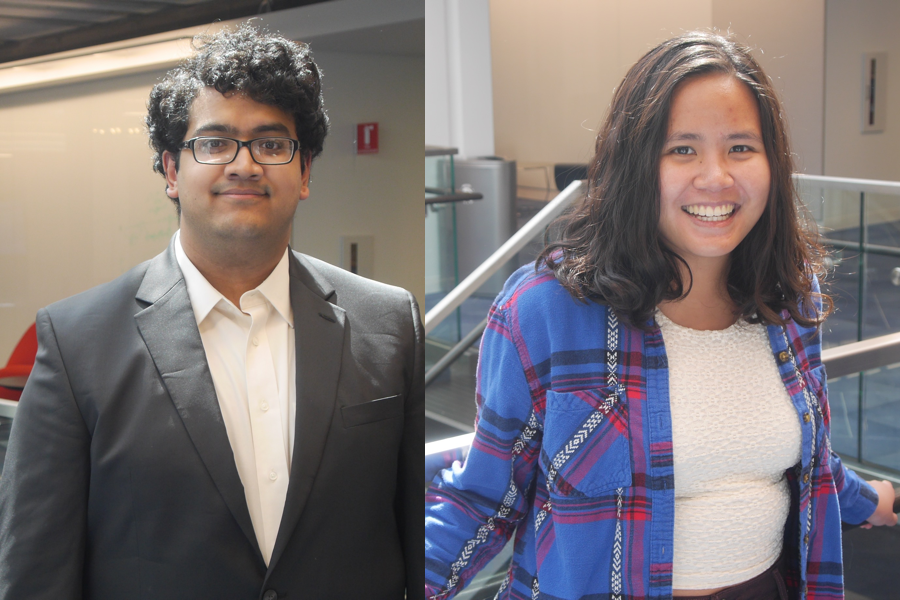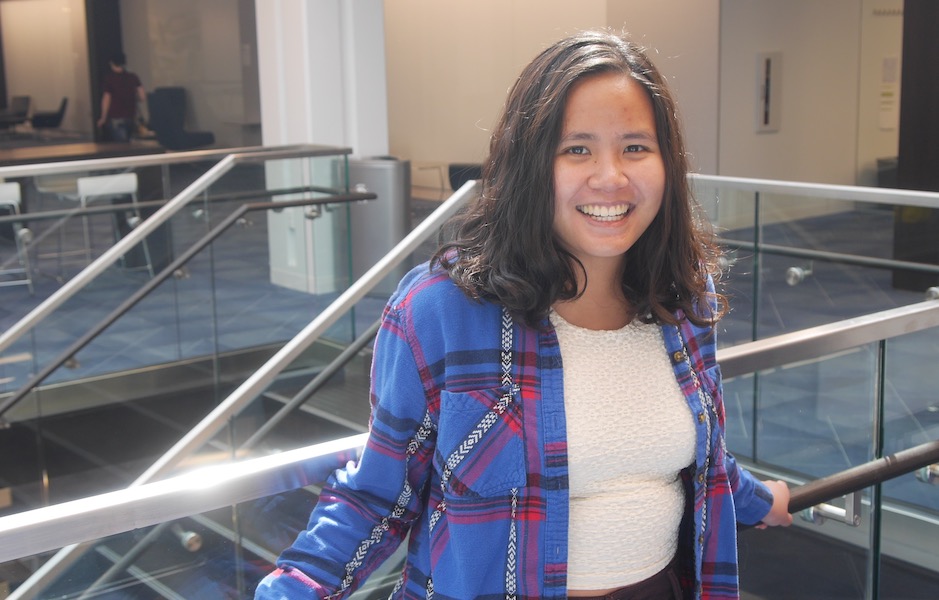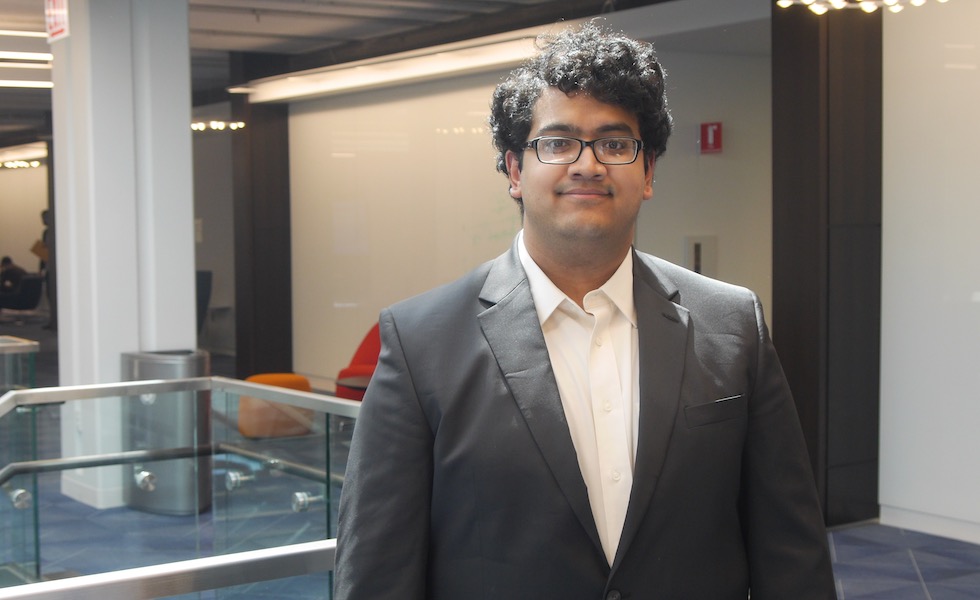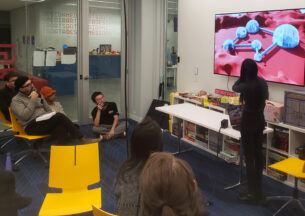Two UChicago CS Students Awarded NSF Graduate Research Fellowship

A graduate student researching how to improve computer science education at the grade school level and an undergraduate interested in creating efficient data-intensive software for scientists were the UChicago CS recipients of this year’s prestigious NSF Graduate Research Fellowship.
Jean Salac, a 2nd-year PhD student working with Research Associate Professor Diana Franklin, and Pranav Subramaniam, a 4th-year undergraduate who works with Associate Professor Shan Lu and Assistant Professor Aaron Elmore, were among 16 students from the University of Chicago Physical Sciences Division to receive the honor. The program provides funding support for exceptional students pursuing master’s or doctoral degrees in STEM disciplines.

A More Inclusive Computer Science, Starting at an Early Age
Salac came to computer science herself at a relatively late stage in her education, only taking her first CS course as an undergraduate at the University of Virginia to check off a requirement. But once in the class, Salac found she enjoyed the problem-solving aspects of computer science, and realized how learning to manipulate technology can amplify people’s abilities and impact.
“I derived a lot of satisfaction from writing code that worked and building something that worked,” Salac said. “At the same time, there was also the parallel reflection backwards of why didn't I get into this earlier, and why was I steered away from it?”
Motivated by that question, Salac’s research examines the obstacles that students face in learning the basics of computer science. With Franklin, she’s studied the relationship between skills such as reading comprehension, mathematics, and spatial reasoning and the ability to learn to write code.
While others have studied this topic in students at the college, high school, or middle school level, Salac is interested what works best for grade school children receiving early exposure to computer science principles. The findings, and new approaches she’s developing to assess CS knowledge in young students, could be used to build better curricula that connect with a broader population of children. Salac is also interested in working at the education policy level after attaining her doctorate, inspired by time spent interning at the National Science Foundation.
“Computer science education requires a special skill set that few possess,” Franklin said. “In order to be a very strong computer science education researcher, three sets of skills are helpful: computer science technical knowledge, educational / sociological knowledge, and research skills. It is rare to see an individual who can demonstrate excellence in all three areas because the skills required are so different, but Jean has already demonstrated that she is one of those unique individuals, and I am glad the National Science Foundation has recognized how truly special she is. This award is well deserved.”
In parallel to her graduate student work, Salac has also been an advocate for diversity and inclusion within the department and on the UChicago campus. She founded and co-chaired the Graduate Women in Computer Science group, and serves as the CS department’s representative on the PSD Student Equity, Diversity, and Inclusion Committee.
“I think my favorite part about our department, is that it's growing a lot,” Salac said. “It just feels like there's a lot of change going on, which is very good, because you get different people with different viewpoints. It feels like there's a good environment for collaboration and the melding of ideas here.”

Making Computer and Data Science Play Nice With Other Sciences
Unlike Salac, Subramaniam was attracted to computer science from the beginning of his undergraduate studies, because “computers are cool, they do cool stuff!,” he says. But as he worked on a CS major, he heard frustration from his peers working in other scientific fields as they struggled to find software that could efficiently accomplish data-intensive tasks in their discipline.
“All of these applications they were trying to use for their own projects were created by computer scientists, but were not created with the intentions of ease of use and performance transparency,” Subramaniam said. “That was when I became interested in how can I build fast applications, and applications that are easy for other people to use.”
Those interests led him to split his time working with two different research groups in UChicago CS. With Lu, he’s studied database performance, and the types of bugs that can arise in databases that support web applications. With Elmore, he’s studied databases and data structures that can help different applications run more efficiently.
“I’m really thankful to both Professors Lu and Elmore, they gave me lots of feedback in preparing for this fellowship application,” Subramaniam said. “My proposal was about a combination of databases and software engineering and I definitely would never have thought of that if I hadn't worked with them.” Subramaniam also thanked Professor Janos Simon for supporting his fellowship application, David Lerner at the UChicago Career Center, and Dan Moore and the Stamps Foundation for their invaluable support.
Subramaniam graduates this June, but he has chosen to stay at UChicago to begin his graduate work in computer science.
“There's some really great fundamental and interdisciplinary work that's going on here that I just don't think is going on at other places, with respect to how databases are being applied to this combination of databases and machine learning,” Subramaniam said. “I think that there's this unique combination of that happening here.”
“Pranav has been doing research in my group since he was a sophomore student, and I have always been impressed by his research creativity and independence,” Lu said. “I cannot wait to see the great research Pranav will do in the next few years as our Ph.D. student!”












